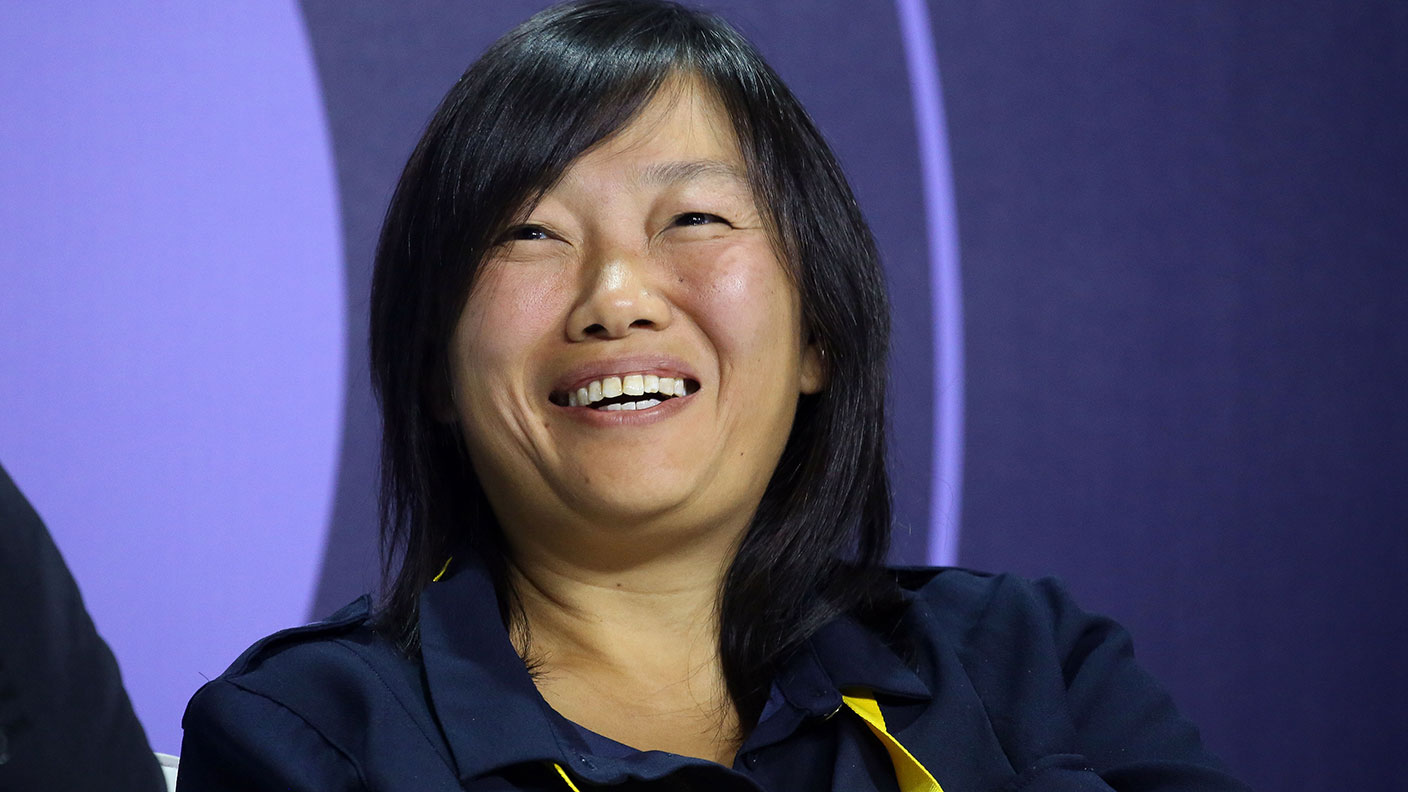Tatyana Bakalchuk: the woman creating a Russian Amazon
Wildberries, the business Tatyana Bakalchuk founded in her Moscow apartment while on maternity leave in 2004, has become Russia’s leading ecommerce site.


Get the latest financial news, insights and expert analysis from our award-winning MoneyWeek team, to help you understand what really matters when it comes to your finances.
You are now subscribed
Your newsletter sign-up was successful
Want to add more newsletters?
Entrepreneur Tatyana Bakalchuk is “an anomaly”, says Max Seddon in the Financial Times. In Russia’s male-dominated business world, success often depends on ties to the Kremlin. Bakalchuk (pictured), though, is a self-made billionaire, the first such woman in the country. Wildberries, the business she founded in her Moscow apartment while on maternity leave in 2004, has “fought off venture capitalists and state-backed rivals” to become Russia’s leading ecommerce site.
Bakalchuk, 44, now has a $1.1bn fortune, and became rich by “reaching deep into everyday Russian life”. Her firm began as an online clothes retailer for women and took time to emerge as a serious business because ecommerce lacked an infrastructure – the long distances in Russia, poor roads and sclerotic postal service held up development. But she ploughed on regardless. “If I’d read business textbooks, I probably wouldn’t have done anything. I’d have worked out the business model and realised it was impossible. But if you don’t know, then it can’t scare you.” Today, the company offers four million different products from 35,000 brands and 26,000 suppliers.
Wildberries’ turnover grew 88% in 2019 to Rbs223.5bn ($3bn), with net profit rising from Rbs1.88bn to Rbs7bn, making Wildberries the leader in Russia’s fast-growing ecommerce market. Bakalchuk, who processed her first orders herself at home, now runs a business with no external investors and 48,000 employees, including 12,000 extra staff hired to cope with surging business as a result of Covid-19. In the first quarter of 2020, Wildberries doubled both turnover and sales year on year.
Try 6 free issues of MoneyWeek today
Get unparalleled financial insight, analysis and expert opinion you can profit from.

Sign up to Money Morning
Don't miss the latest investment and personal finances news, market analysis, plus money-saving tips with our free twice-daily newsletter
Don't miss the latest investment and personal finances news, market analysis, plus money-saving tips with our free twice-daily newsletter
The secret to success, she says, is to start small and move slowly. “Russian entrepreneurs who go to schools such as Harvard are all obsessed with the idea that you come up with a business idea, raise money and grow as fast as you can.” But when you do that “your business model will have feet of clay. It has to be done right”.
Get the latest financial news, insights and expert analysis from our award-winning MoneyWeek team, to help you understand what really matters when it comes to your finances.
Nic studied for a BA in journalism at Cardiff University, and has an MA in magazine journalism from City University. She has previously worked for MoneyWeek.
-
 Do you face ‘double whammy’ inheritance tax blow? How to lessen the impact
Do you face ‘double whammy’ inheritance tax blow? How to lessen the impactFrozen tax thresholds and pensions falling within the scope of inheritance tax will drag thousands more estates into losing their residence nil-rate band, analysis suggests
-
 Has the market misjudged Relx?
Has the market misjudged Relx?Relx shares fell on fears that AI was about to eat its lunch, but the firm remains well placed to thrive
-
 Anthropic’s Dario Amodei: The AI boss in a showdown with Trump
Anthropic’s Dario Amodei: The AI boss in a showdown with TrumpAnthropic’s CEO Dario Amodei was on an extraordinary upward trajectory when he found himself on the wrong side of the American president. He is about to be severely tested.
-
 The downfall of Peter Mandelson
The downfall of Peter MandelsonPeter Mandelson is used to penning resignation statements, but his latest might well be his last. He might even face time in prison.
-
 Ayatollah Ali Khamenei: Iran’s underestimated chief cleric
Ayatollah Ali Khamenei: Iran’s underestimated chief clericAyatollah Ali Khamenei is the Iranian regime’s great survivor portraying himself as a humble religious man while presiding over an international business empire
-
 Long live Dollyism! Why Dolly Parton is an example to us all
Long live Dollyism! Why Dolly Parton is an example to us allDolly Parton has a good brain for business and a talent for avoiding politics and navigating the culture wars. We could do worse than follow her example
-
 Michael Moritz: the richest Welshman to walk the Earth
Michael Moritz: the richest Welshman to walk the EarthMichael Moritz started out as a journalist before catching the eye of a Silicon Valley titan. He finds Donald Trump to be “an absurd buffoon”
-
 David Zaslav, Hollywood’s anti-hero dealmaker
David Zaslav, Hollywood’s anti-hero dealmakerWarner Bros’ boss David Zaslav is embroiled in a fight over the future of the studio that he took control of in 2022. There are many plot twists yet to come
-
 The rise and fall of Nicolás Maduro, Venezuela's ruthless dictator
The rise and fall of Nicolás Maduro, Venezuela's ruthless dictatorNicolás Maduro is known for getting what he wants out of any situation. That might be a challenge now
-
 The political economy of Clarkson’s Farm
The political economy of Clarkson’s FarmOpinion Clarkson’s Farm is an amusing TV show that proves to be an insightful portrayal of political and economic life, says Stuart Watkins
